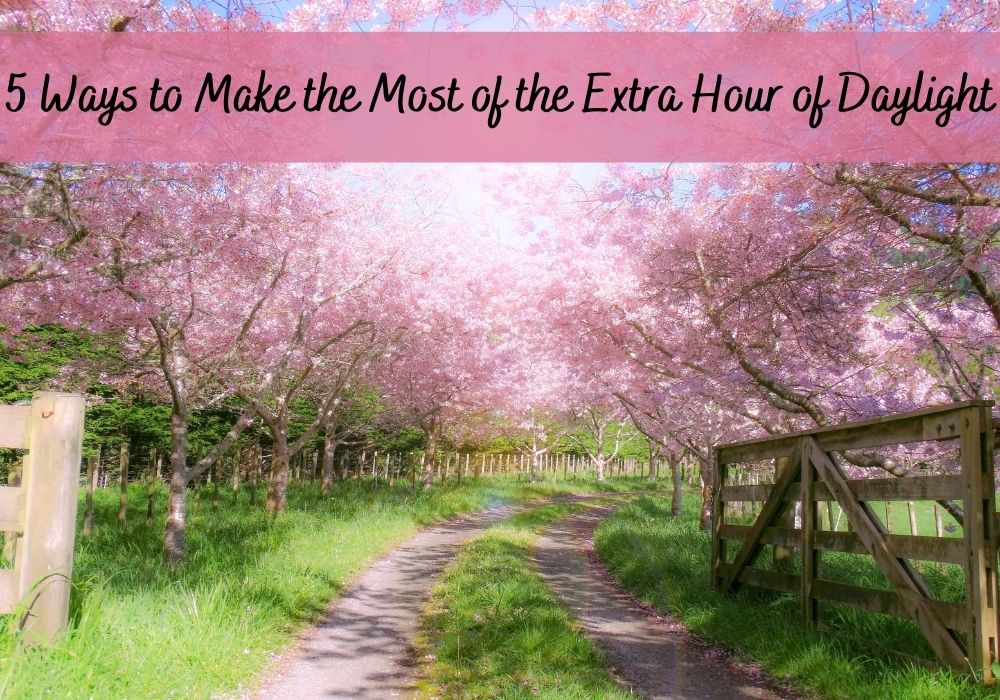
5 Ways to Make the Most of the Extra Hour of Daylight
As the clock springs forward, most people jump with excitement at the prospect of better weather returning and longer daylight hours. Even though daylight saving time is astoundingly beneficial in many ways, it can have adverse effects on the circadian rhythm – and an internal clock that manages the human sleep-wake cycle. This system is the reason you might feel alert in the early morning, groggy after lunchtime, and a little zonked in the evening.
During DST, you are going to lose an hour of your sleep. This could make you feel irritable and reduce your productivity. But it doesn’t have to! Below are some of the ways you can make the best out of your extra hours:
-
Keep your schedule consistent
After the time change, it is easy to change your schedule without knowing. Because of the longer days, you might find yourself sleeping late or forgetting to exercise. Set a reminder to go to sleep at the usual time, and don’t let the extra hours take a toll on your workout time. Sticking to your regular schedule will help you feel less tired, and your body will adjust faster to the time change.
-
Go for a hike or cycle
Hiking is an excellent form of exercise. Unfortunately, in winter, when daylight hours are short, it is challenging to find the time. Now that you have some extra hours, why not join your friends, family, or colleagues for a hiking expedition? If hiking is not your thing, then use the extra hours for cycling or walking around your local park.
-
Boost Your Vitamin D
Busking in the sun is not only good for the soul, but it can also boost your vitamin D levels. Vitamin D helps the body ward off diseases, shed some weight, resist depression, and more. Of course, you might choose to stay indoors and take Vitamin D supplements, but now that you have some extra hours, why don’t you soak in the sun and get this essential nutrient for free as you have fun?
-
Exercise
Being physically active is one of the best ways to maintain good health and sleep better too. Exercising doesn’t, however, mean that you spend hours on end in the gym. You can use your extra hours to run or walk outdoors where you are exposed to natural sunlight. However, avoid working out too close to your bedtime. It is critical to allow at least two hours to rest from exercise before retiring to bed.
-
Nap if you need to
If you feel sleep-deprived, then don’t be ashamed to take a nap during DST. However, it is recommended that you avoid sleeping in the mornings since doing this will only prolong the body’s reaction to the time change. Also, a nap too close to your bedtime can interrupt your overnight sleep. Try to take a nap in the afternoon, and keep your naps 30 minutes or less.
Apart from following these tips, you can also make the best out of daylight saving hours by reducing your screen time. Even though phones, tablets, TVs, and more can help unwind for the evening, they can stimulate your brain and make it harder to fall asleep. Avoid computer displays and handheld displays at least two hours before bed. Also, avoid watching TV at least one hour before bed.
Comment if you tried any of these, or if you have your own tips to make the most of the sunshine!
Sign up for our newsletter
get 10% off your purchase today!

